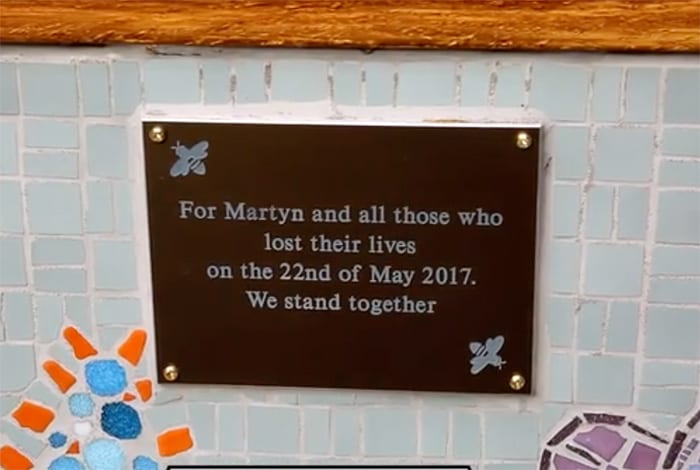Martyn’s Law set to be introduced for venue security to cover all of UK in the wake of the Manchester Arena bombings
- Written by Thom Bamford
- Last updated 2 years ago
- Uncategorized

The law, dubbed Martyn’s Law will now require all local authorities and venues to have preventative action plans against terror bombings.
Martyn Hett was one of the 22 people killed in the tragic events at the Manchester Arena in 2017.
His mother, Figen Murray has tirelessly campaigned for the measures to be introduced.
Earlier this week Prime Minister Rishi Sunak confirmed that ‘draft legislation’ is due in the early spring.
Rishi Sunak said in a statement:
“The way the city of Manchester came together as a community in the wake of the cowardly Manchester Arena attack, and the amazing work of campaigners like Figen Murray who have dedicated their lives to making us safer and promoting kindness and tolerance, is an inspiration to us all.
“I am committed to working with Figen to improve security measures at public venues and spaces and to delivering this vital legislation to honour Martyn’s memory and all of those affected by terrorism.”
The Government say the legislation will ensure parties are prepared, ready to respond and know what to do in the event of an attack.
And it’s not just gig venues.
Anywhere that hosts entertainment and leisure, retail, food and drink, museums and galleries, sports grounds, public areas of local and central Government buildings (e.g., town halls), visitor attractions, temporary events, Places of Worship, health, and education will all have to sign up to plans.

Speaking on the Government’s website, Figen Murray, mother of Martyn Hett said:
“Martyn’s Law isn’t going to stop terrorism, but common-sense security, and making sure venues are doing all they can to keep people safe, could mean fewer suffer what myself and the families of Manchester have had to endure.
“I welcome the Government’s commitment to including smaller venues and working quickly on this legislation. It is vital we now take the necessary steps to protect ourselves and others wherever possible and I hope other countries learn from this ground-breaking legislation.”
The plans have been developed following public consultation and extensive engagement across industry, charities, local authorities, security experts and with survivors.

70% of the thousands who responded to the consultation agreed that those responsible for publicly accessible locations should take measures to protect the public from potential attacks.
The measures will be different across each venue, but smaller venues will have to include things like training, information sharing and completion of a preparedness plan to embed practices, such as locking doors to delay attackers progress or knowledge on lifesaving treatments that can be administered by staff whilst awaiting emergency services.
For bigger venues, for those with more than 800 capacity, stricter plans will be in place.
They will have to undertake a risk assessment to inform the development and implementation of a thorough security plan.
In addition to this, measures could include developing a vigilance and security culture, implementation of physical measures like CCTV or new systems and processes to enable better consideration of security.
The Government are planning to set up an inspectorate, established to seek to educate, advise, and ensure compliance with the new rules
Where necessary, the inspectorate will use a range of sanctions to ensure that breaches are effectively dealt with.
- This article was last updated 2 years ago.
- It was first published on 20 December 2022 and is subject to be updated from time to time. Please refresh or return to see the latest version.
Did we miss something? Let us know: press@ilovemanchester.com
Want to be the first to receive all the latest news stories, what’s on and events from the heart of Manchester? Sign up here.
Manchester is a successful city, but many people suffer. I Love Manchester helps raise awareness and funds to help improve the lives and prospects of people across Greater Manchester – and we can’t do it without your help. So please support us with what you can so we can continue to spread the love. Thank you in advance!
An email you’ll love. Subscribe to our newsletter to get the latest news stories delivered direct to your inbox.
Got a story worth sharing?
What’s the story? We are all ears when it comes to positive news and inspiring stories. You can send story ideas to press@ilovemanchester.com
While we can’t guarantee to publish everything, we will always consider any enquiry or idea that promotes:
- Independent new openings
- Human interest
- Not-for-profit organisations
- Community Interest Companies (CiCs) and projects
- Charities and charitable initiatives
- Affordability and offers saving people over 20%
For anything else, don’t hesitate to get in touch with us about advertorials (from £350+VAT) and advertising opportunities: advertise@ilovemanchester.com



The eclectic group that’s been helping writers cut their teeth for 50 years

Manchester and Los Angeles prove that opposites really do attract

“His presence will be deeply missed” Children’s hospice bids farewell to their visionary CEO
















